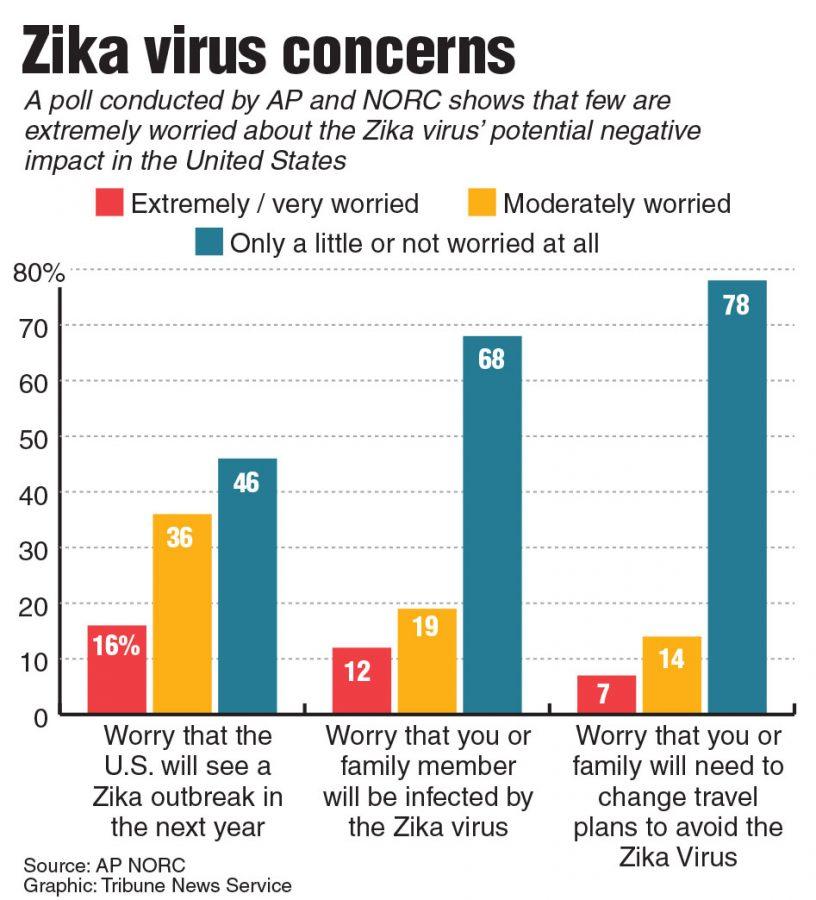Mosquitoes with Zikavirus reported to reach U.S. soon
Poll showing on American¹s concerns for the Zika virus.
May 24, 2016
The Zikavirus, a mosquito-borne virus known to be mainly in Latin America, could spread to the United States in the next month or so.
Anthony Fauci, director of the National Institute of Allergy and Infectious Diseases said on ABC News that more than 500 Americans already have the Zikavirus.
Dr. Fauci also told a separate briefing at the Pan American Health Organization’s headquarters in Washington, D.C. that it is “very very likely” Zika will spread to the U.S.
Last week the House of Representatives passed a measure that would allow $622 million to combat Zika, but the White House has asked for $1.9 billion to stop the spread of the virus, a meaningful precaution to take.
The few cases of Zikavirus reported in the U.S. are travel related. The fear is that local transmission will begin.
Fauci said on ABC that “The concern is that we will have local transmission.” He said, “In other words, people who get infected in the United States, get bitten by a mosquito, but who have never left the continental United States.”
NASA scientists have helped the National Center for Atmospheric Research (NCAR) create a map showing where the mosquitos carrying the virus are most common, to target future search-and-destroy missions.
Scott Weaver of the University of Texas Medical Branch believes the U.S. is highly unprepared for the blow it is about to take. He said, “”We have nothing at the national level other than advice from the CDC and most states do not even coordinate their programs at the county level very well.
Some very poor communities have virtually nothing available. Some wealthy counties have very sophisticated programs.”
The less wealthy communities are definitely going to have a harder time preventing the spread of Zika.
The female Aedes aegypti mosquito are responsible for spreading dangerous diseases such as yellow and dengue fevers, chikungunya and now Zika.
The spread of the diseases is becoming an issue now because of warming temperatures. I guess there was one advantage to such a long and cold winter; a delay in the spread of the Zikavirus.
Typical symptoms of the virus include conjunctivitis, skin rash, mild fever, muscle and/or joint pain; however pregnant women are warned to take extra precaution due to the disease. The Zikavirus is known to be related to birth defects.






















































